-
Vermicomposting, or worm composting, turns kitchen scraps and other green waste into a rich, dark soil by using earth worms called Red Wigglers (Eisenia foetida). Vermicompost is a source of plant nutrients that improves the organic matter of soil. The main component is worm castings, which makes a super compost. Not only is vermicompost rich in nutrients but it is also loaded with the microorganisms that create and maintain healthy soil.
- Join us for an amazing hands-on learning experience that might provide the motivation to start a vermicomposting bin for the classroom or for the home.
- Meet the incredible organisms that are an important part of our soil.
-
Participants will:
- Engage in a discussion about vermicomposting.
- Watch a presentation and short video about earth worms.
- Use magnifying glasses to observe the vermicomposting's inhabitants: worms and other creatures that live in harmony in the compost.
- Sketch the animals found in the compost and identify flying and crawling animals (grade level dependent).
- Draw a decomposition of a food web.
-
Grade Topic 1 Needs of Animals and Plants 2 Small Crawling and Flying animals 3 Animal Life Cycles 4
Waste and Our World
Plant Growth and Changes5 Science Inquiry 6 Evidence and investigation 7 Interactions and Ecosystems 8 Science Inquiry 9
Biological Diversity
Environmental Chemistry -
After the Workshop, participants will be able to do the following:
- Comprehend how worms can get rid of kitchen waste or leftover food from lunchboxes and make an organic fertilizer for a garden or flowerpots.
- Grasp how vermicomposting helps to achieve the United Nations’ Sustainable Development (SDGs) Goals.
- Realize that vermicomposting is a more sustainable alternative to our current waste system.
- Comprehend the benefits of vermicomposting at home.
- Identify the animals that work to change kitchen waste into compost.
- Analyze the interconnectedness of our food cycle through food webs (food chains).
- Examine human activities, their implications, and possible solutions.
-
Length:
Duration of workshop: 45 Minutes
After the vermicomposting workshop, teachers and students can participate in optional follow-up sessions, which include setting up a vermicompost for the classroom, discussing questions or addressing challenges that might arise after starting a vermicompost.Grade Level:
The workshop is for Grades 2, 4, and 7 but can be appropriate for other grades as noted under Curriculum tab.Pricing:
Cost: $500 CAD per workshop
Maximum number of students per workshop: 25-30
Cost to set up a compost bin: $100 CAD -
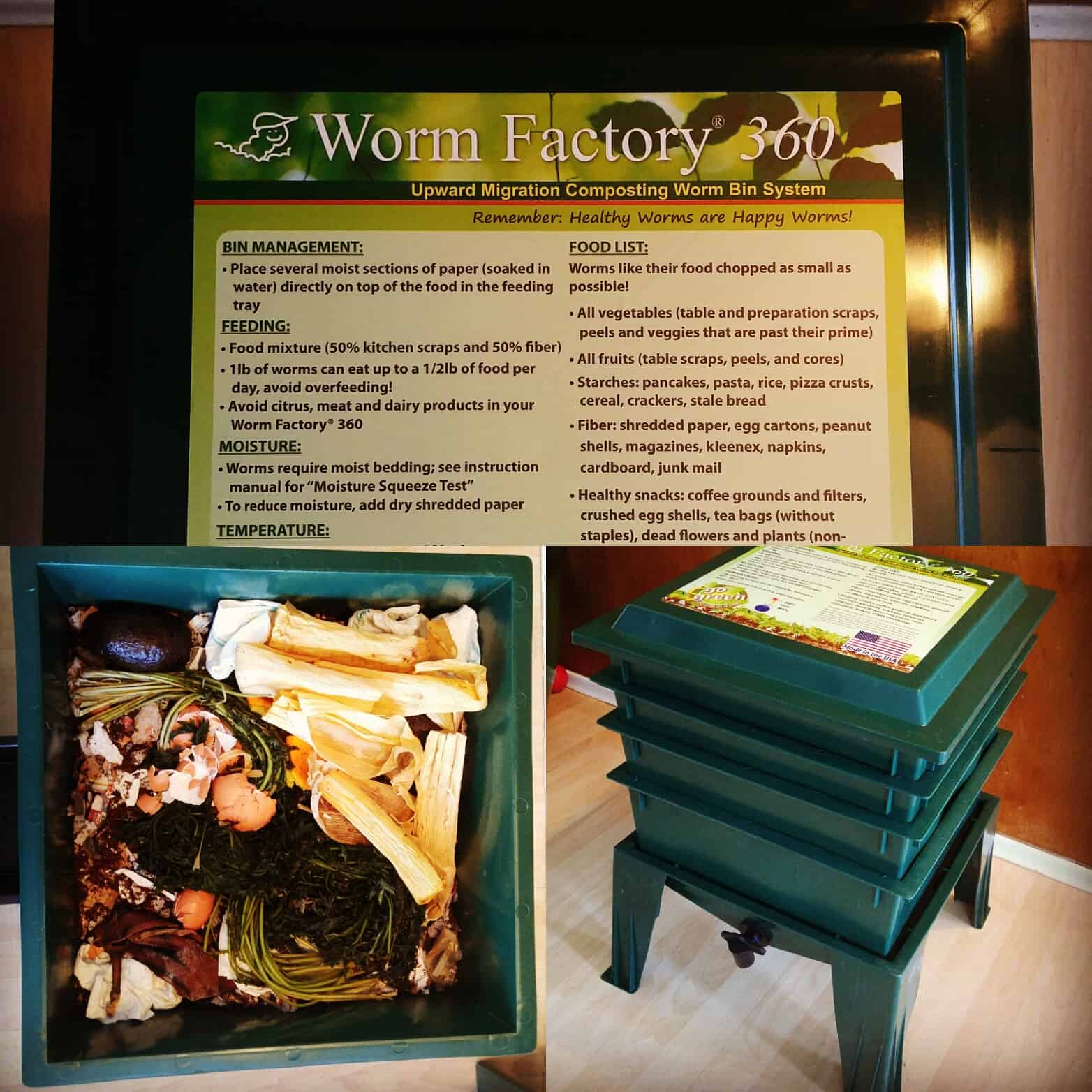
Vermicompost Factory 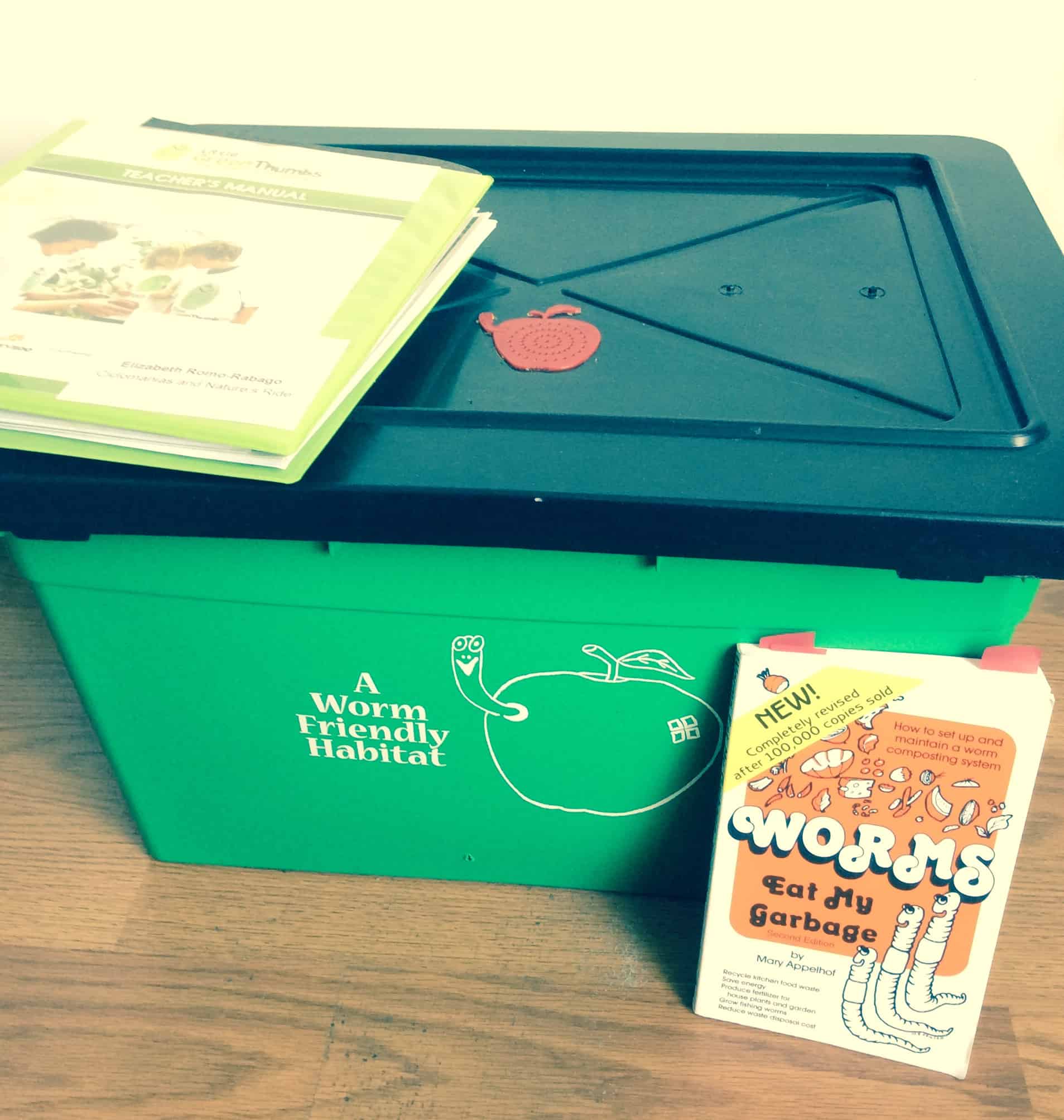
Vermicompost Bin 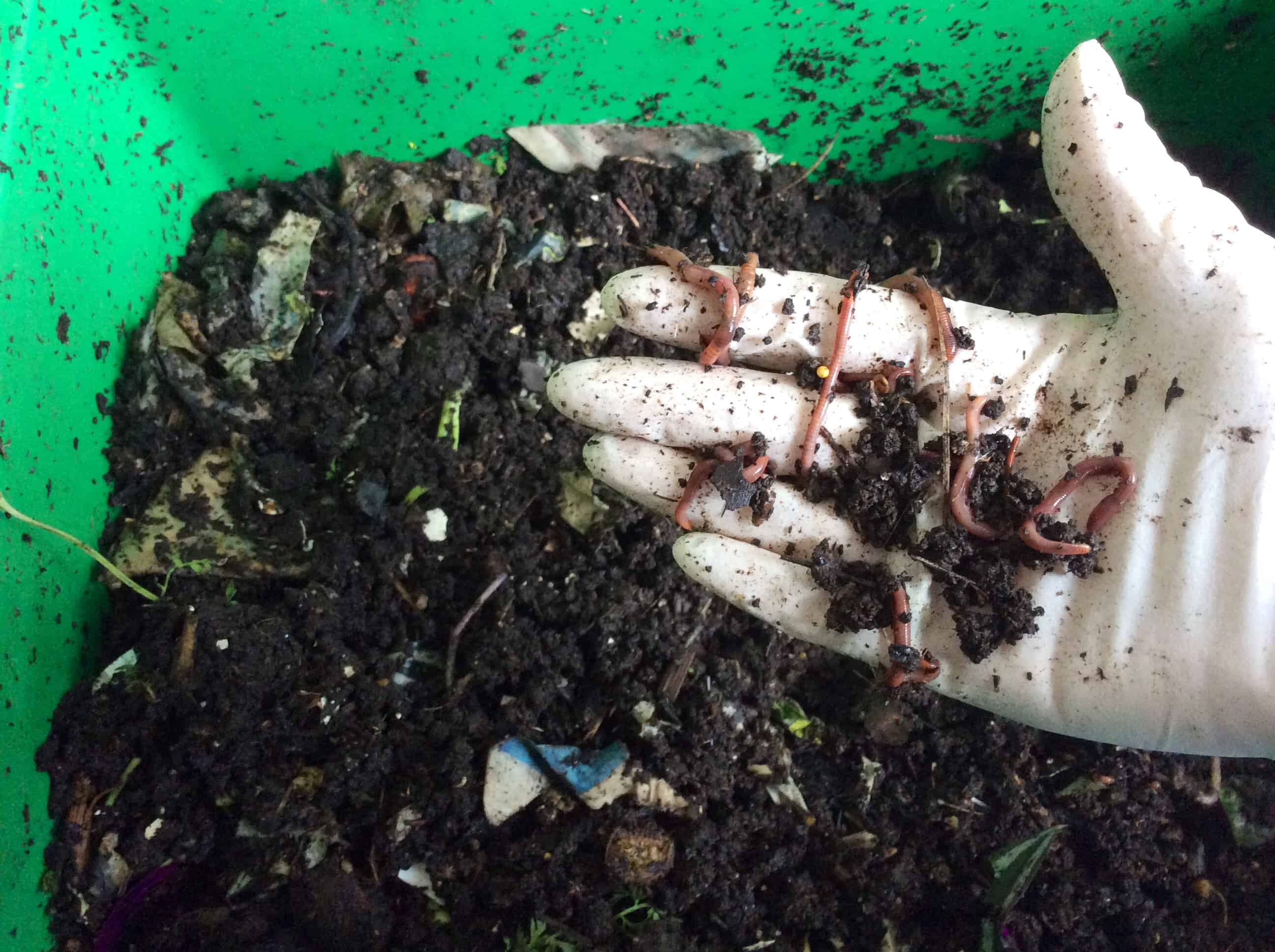
Earth Worms (Eisenia foetida) 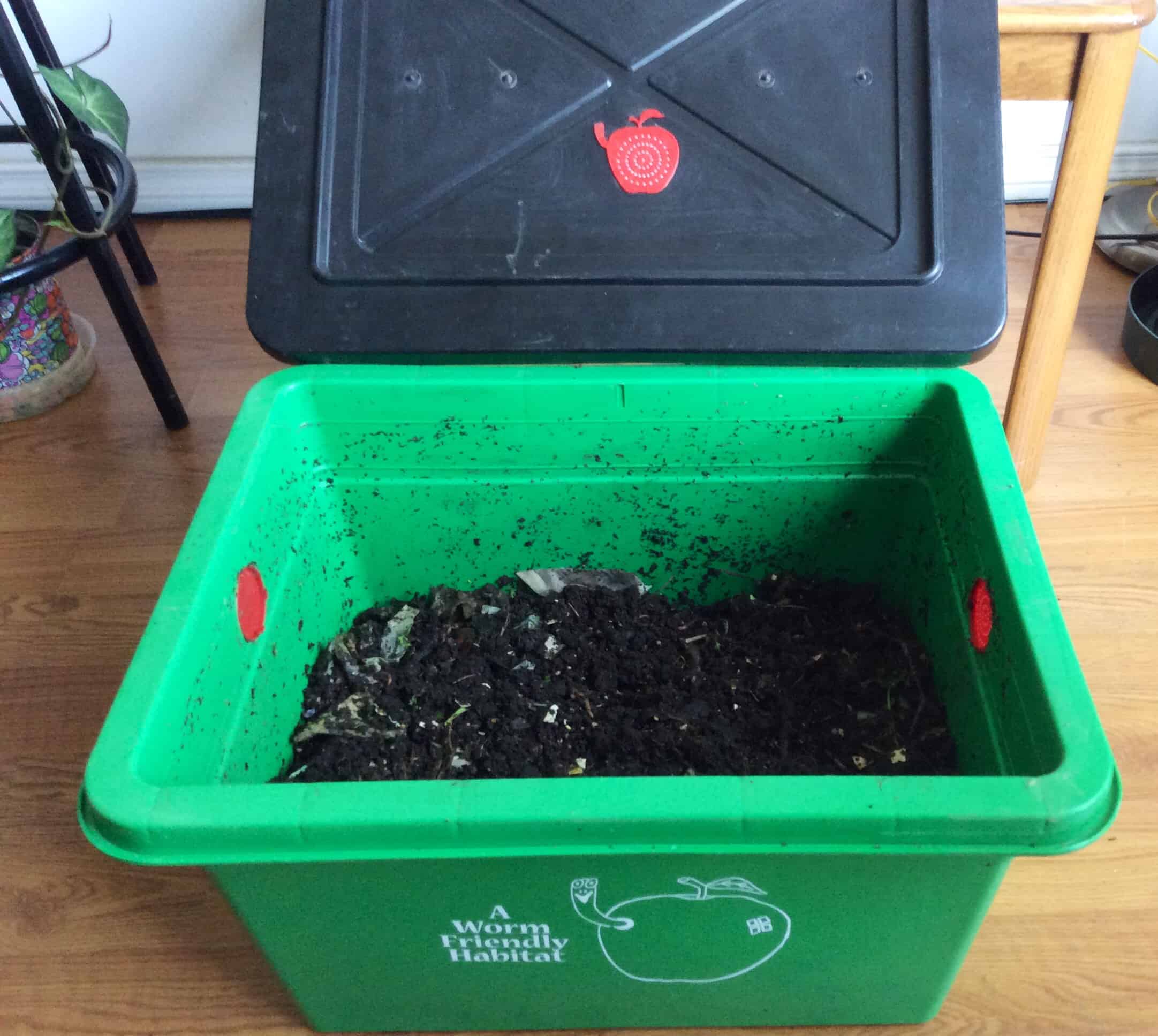
Vermicast: Worm Castings Manure (Worm Poo)/Fertilizer 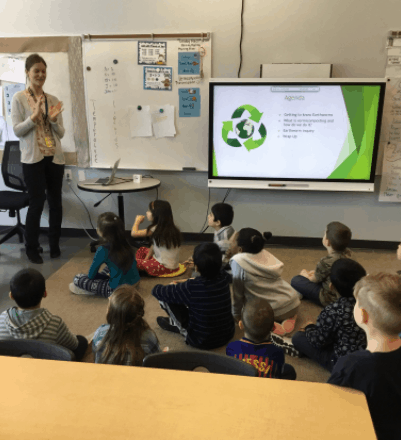
Vermicompost Presentation 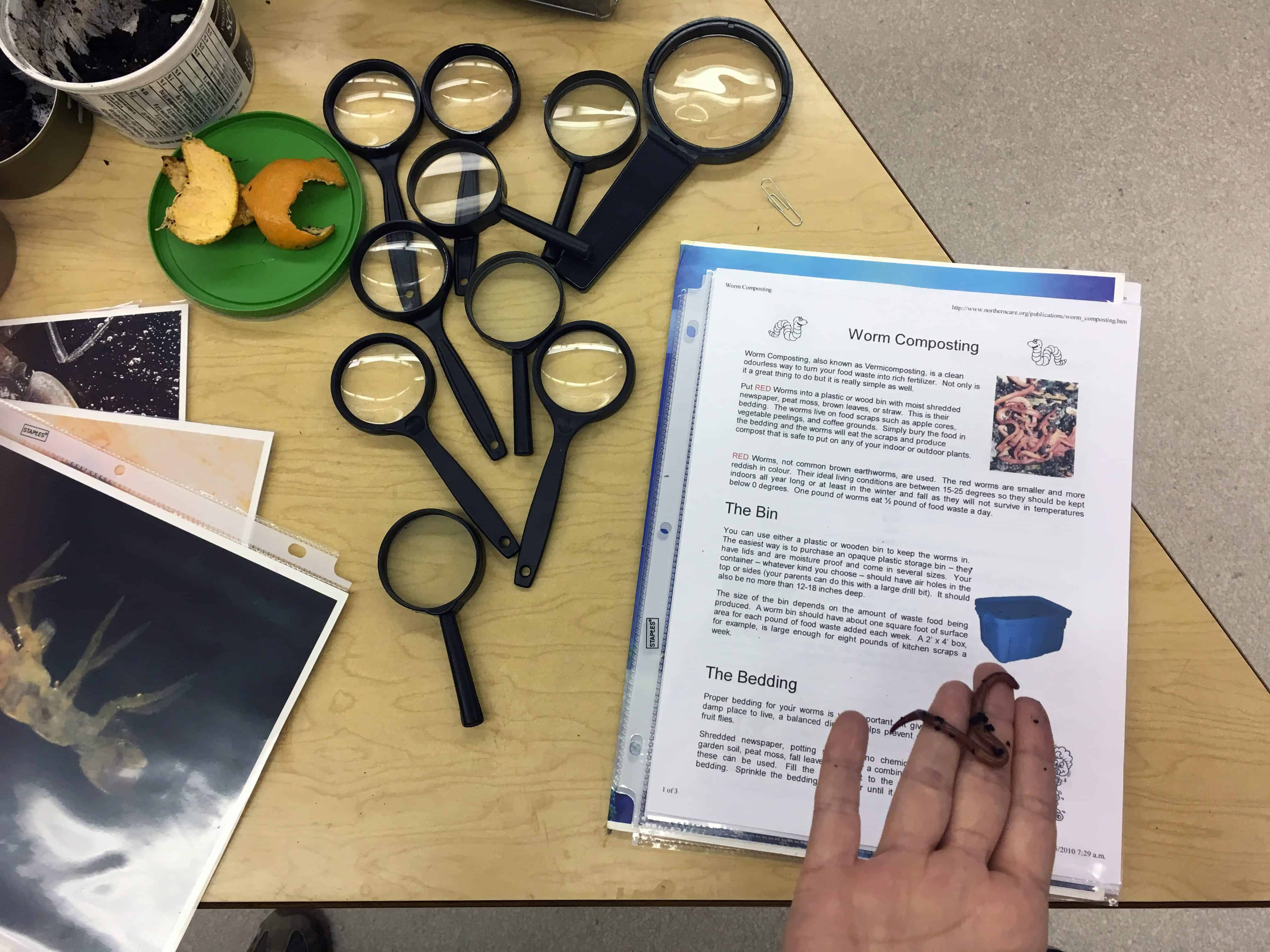
Workshop Tools 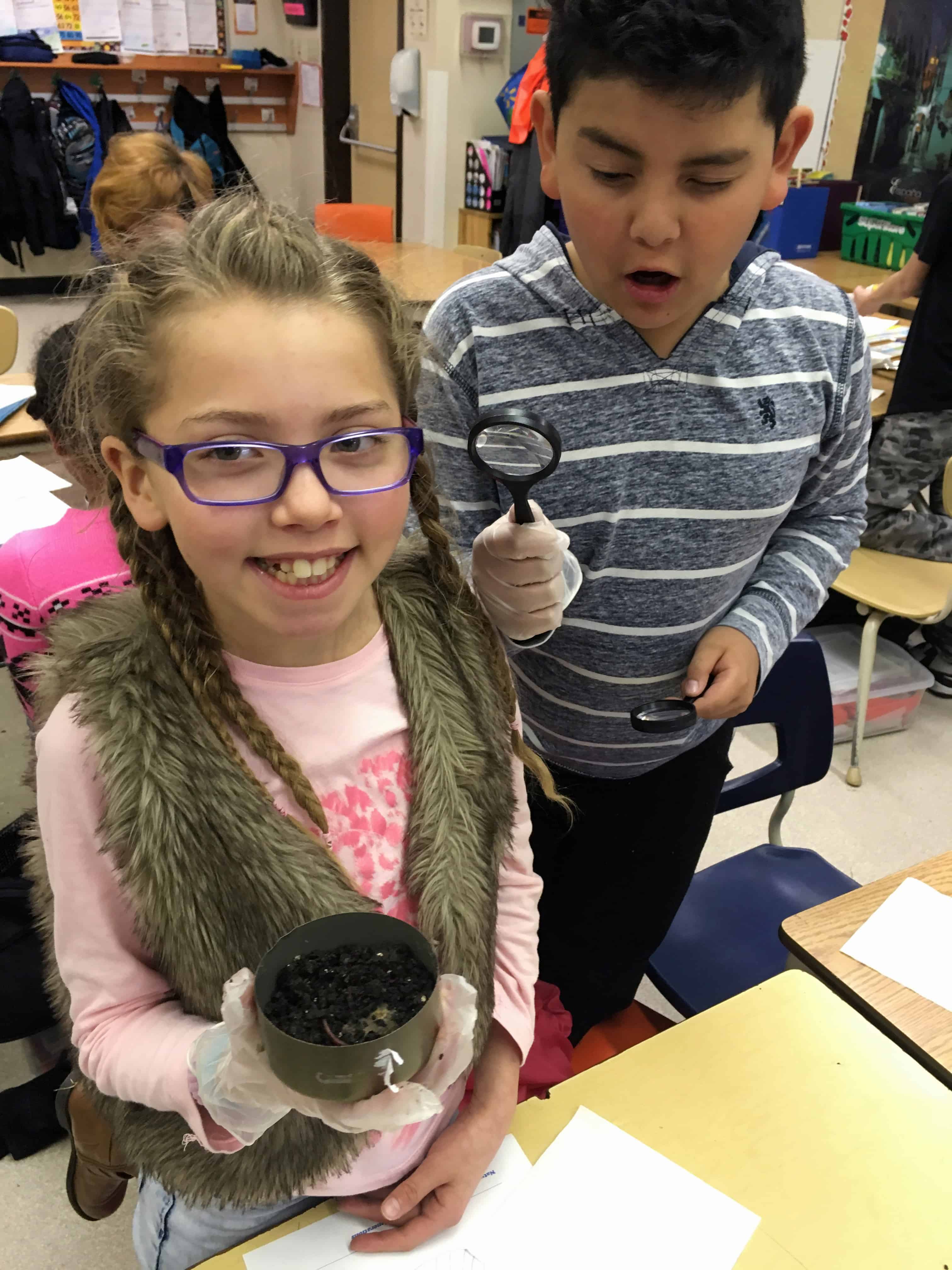
Vermicompost Explorers 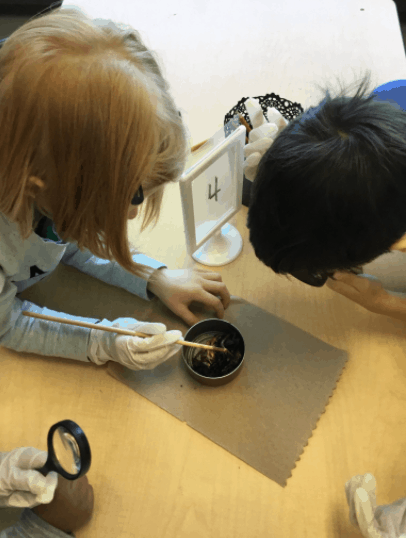
Vermicompost explorers 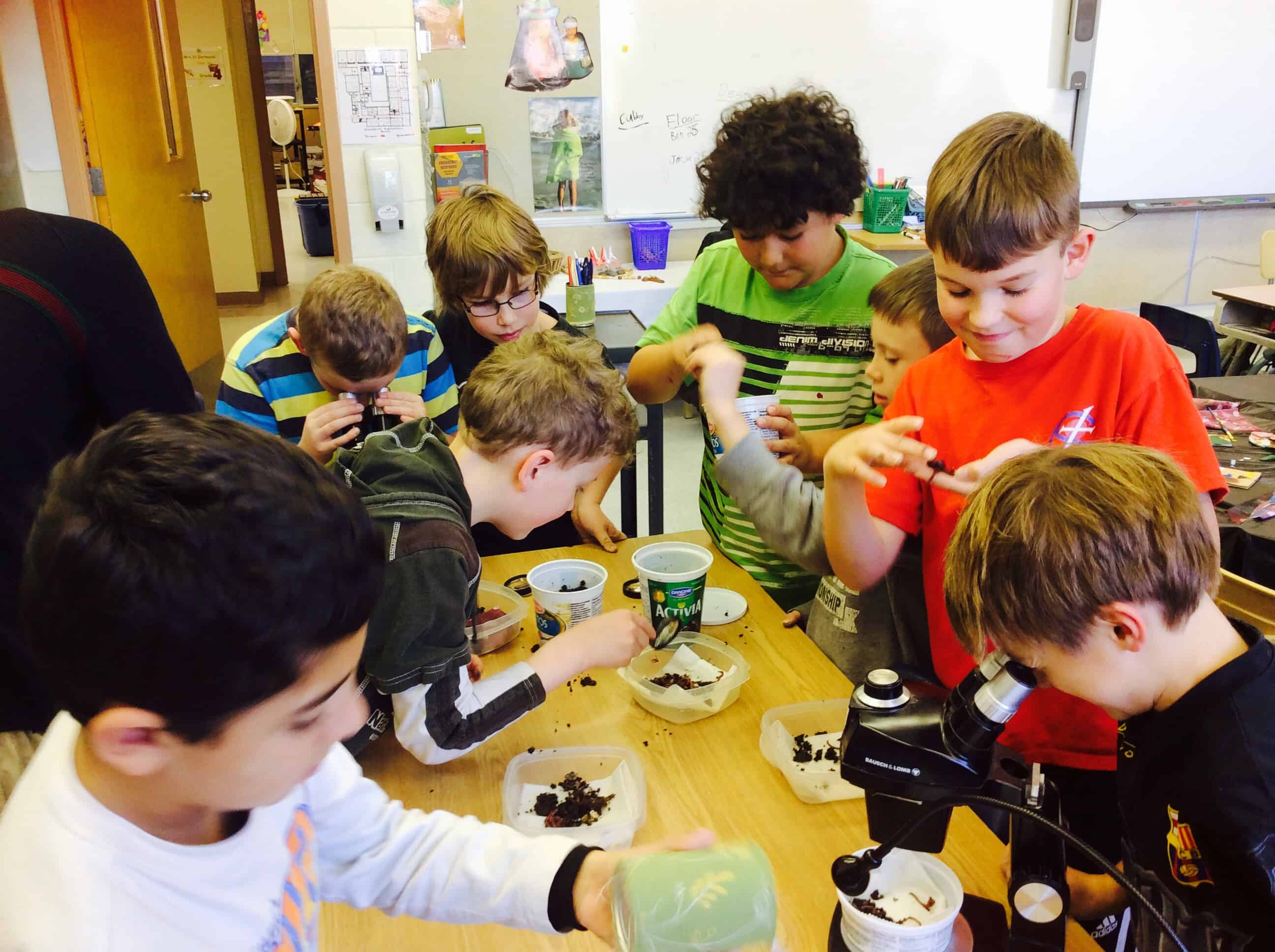
Vermicompost Explorers
-
Do you provide assistance in setting up a compost bin?
Yes, we would be happy to set up a compost bin in a classroom, cafeteria or at another location in the school. There is a small cost for this service.How do you separate the compost from the worms to use the compost?
There are a number of ways that this can be done. We are happy to demonstrate the different ways. However, we probably would need another session to demonstrate the techniques.
